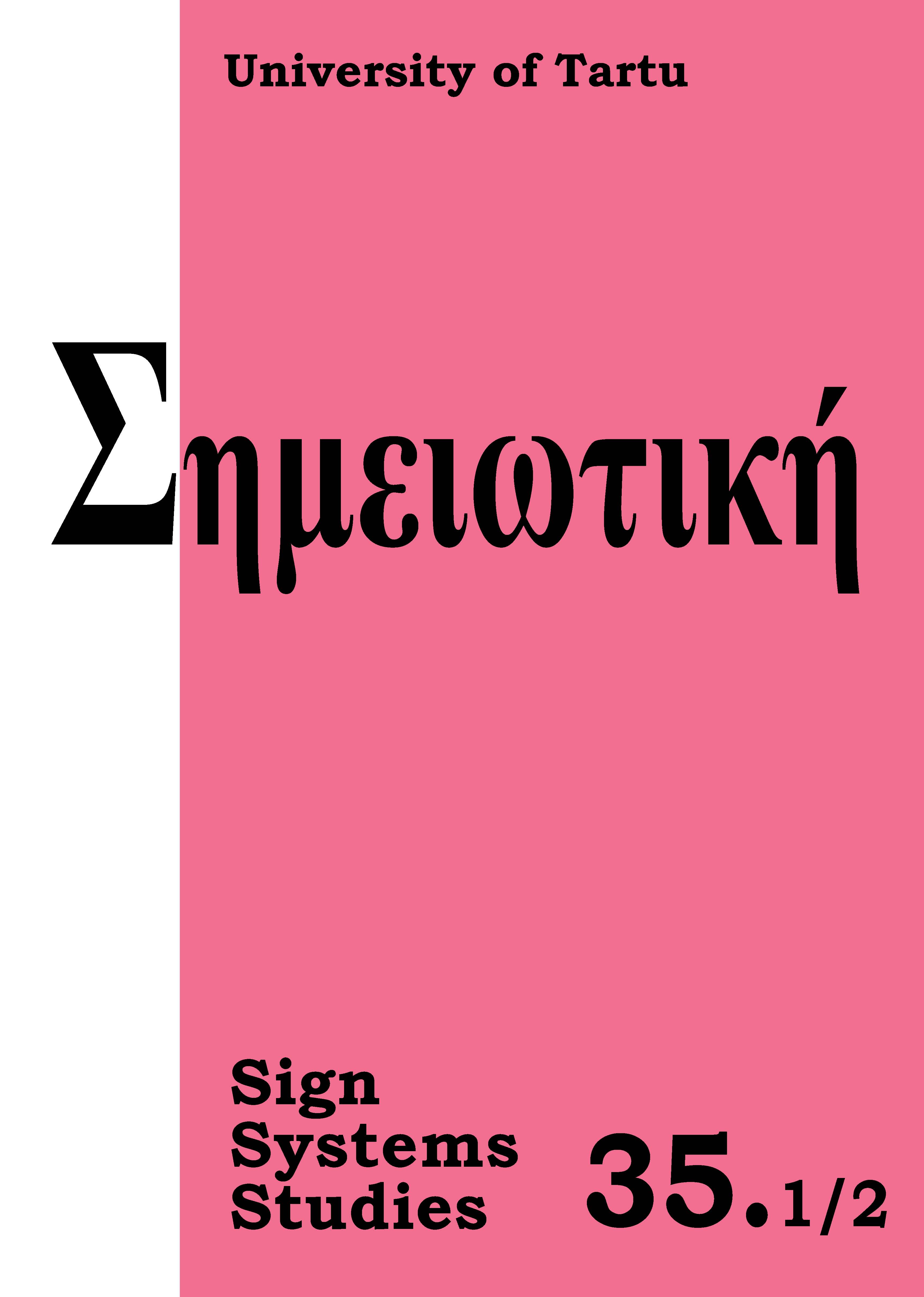Semiotic autoregulation: Dynamic sign hierarchies constraining the stream of consciousness
DOI:
https://doi.org/10.12697/SSS.2007.35.1-2.04Abstract
For all human sciences, understanding of how the mind works requires a new theory that starts from the assumption of potential infinite variability of human symbolic forms. These forms are socially constructed by the person who moves through an endless variety of unique encounters with the world. A theory of symbolic forms needs to capture the essence of hyperdynamic, irreversible nature of the stream of consciousness and activity. The human mind is regulated through a dynamic hierarchy of semiotic mechanisms of increasingly generalized kind, which involves mutual constraining between levels of the hierarchy. It is demonstrated that semiotic mediation leads to a triplet of personal-cultural constructions — a new symbolic form, a metasymbolic form, and a regulatory signal to stop or enable the construction of further semiotic hierarchy. In everyday terms — human beings produce new problems, together with new efforts at solving them, and make decisions when to stop producing the former two. Hence, semiotic mediation guarantees both flexibility and inflexibility of the human psychological system, through the processes of abstracting generalization and contextualizing specification. Context specificity of psychological phenomena is an indication of general mechanisms that generate variability. Scientific investigation of human psychological complexity is necessarily oriented to the study of variability within the individual person’s psychological time-space.


